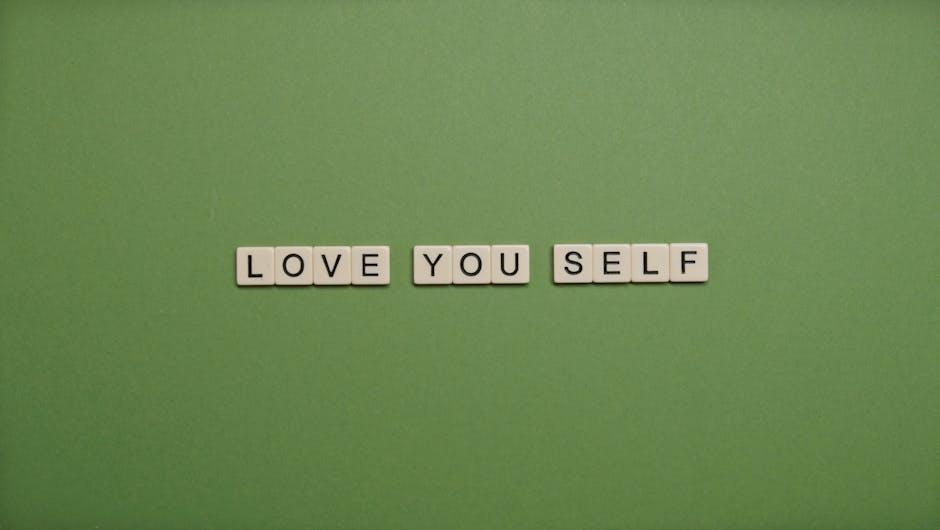In the intricate dance of human connection, finding a partner often takes center stage, captivating our dreams and aspirations. Yet, amidst the whirlwind of romance and companionship, a crucial element frequently goes unnoticed: the understanding of our own emotional needs. Before we can truly share our lives with another, we must first embark on a journey inward, unraveling the complex tapestry of our emotions. This exploration not only enriches our personal growth but also lays a solid foundation for healthier, more fulfilling relationships. Join us as we delve into the art of self-discovery, illuminating the path to authentic love and connection.
Exploring the Depths of Self-Awareness
Delving into the realm of self-awareness unveils the intricate tapestry of our emotional needs, which often lie beneath the surface, waiting to be acknowledged. This journey involves a willingness to confront our innermost feelings and desires, allowing us to nurture a deeper connection with ourselves. Understanding these needs is not just about introspection; it’s about recognizing patterns and triggers that influence our behavior and emotions. This process requires a commitment to self-reflection and the courage to embrace our vulnerabilities.
Consider the following steps to enhance your self-awareness:
- Journaling: Regularly write about your thoughts and feelings to uncover recurring themes and emotions.
- Meditation: Practice mindfulness to center your thoughts and become attuned to your inner self.
- Feedback: Seek honest insights from trusted friends or mentors to gain a different perspective on your emotional patterns.
- Self-Compassion: Be kind to yourself as you explore your emotional landscape, acknowledging that growth is a gradual process.
By understanding your emotional needs, you empower yourself to enter relationships with clarity and confidence, paving the way for healthier, more fulfilling connections.

Identifying Emotional Patterns and Triggers
Understanding your emotional patterns and triggers is a crucial step in self-discovery. These patterns often manifest in recurring reactions to certain situations or people, shaping how you perceive and interact with the world. Recognizing these can be transformative, as it allows you to address underlying issues that may have been overlooked. Start by paying attention to moments when your emotions feel particularly intense or disproportionate. Ask yourself: What was the situation? Who was involved? and How did it make me feel? This self-reflection helps in identifying the root causes of your emotional responses.
- Common Triggers: Identify if your triggers stem from past experiences, unmet needs, or specific environments.
- Patterns in Reactions: Notice if you tend to react with anger, sadness, or withdrawal in similar situations.
- Impact on Relationships: Consider how these patterns affect your interactions with others, particularly in romantic settings.
By becoming aware of these emotional intricacies, you empower yourself to manage them better, paving the way for healthier relationships. Understanding your own needs and boundaries is essential before sharing your life with someone else.

Cultivating Self-Compassion and Acceptance
In our journey towards understanding our emotional needs, embracing self-compassion and acceptance is crucial. This involves recognizing that everyone has flaws and vulnerabilities, and that it’s okay to be imperfect. By treating ourselves with kindness, we create a nurturing environment where personal growth can flourish. Here are some ways to foster self-compassion:
- Acknowledge Your Feelings: Allow yourself to experience emotions without judgment. Recognize them as a natural part of being human.
- Practice Mindfulness: Stay present in the moment, observing your thoughts and feelings without getting overwhelmed.
- Speak Kindly to Yourself: Replace self-criticism with encouraging words, as you would for a dear friend.
Accepting ourselves as we are, with all our strengths and weaknesses, paves the way for healthier relationships. It helps us set realistic expectations and prevents us from seeking validation solely from others. By cultivating a strong sense of self-worth, we become better equipped to build genuine connections with future partners.

Building a Foundation for Healthy Relationships
Understanding your emotional needs is crucial in establishing a strong base for any relationship. Before embarking on a journey with a partner, it’s essential to explore and identify what truly matters to you emotionally. This self-awareness helps in setting realistic expectations and communicating effectively. Consider the following:
- Self-reflection: Spend time introspecting about your feelings, desires, and what makes you feel secure and valued.
- Emotional triggers: Identify situations or behaviors that elicit strong emotional responses, and understand why they affect you.
- Boundaries: Determine your personal limits and how you wish to be treated, ensuring mutual respect in relationships.
By recognizing and honoring your emotional needs, you lay the groundwork for relationships that are nurturing and fulfilling. This foundation not only fosters personal growth but also enhances the ability to connect with others on a deeper level.




